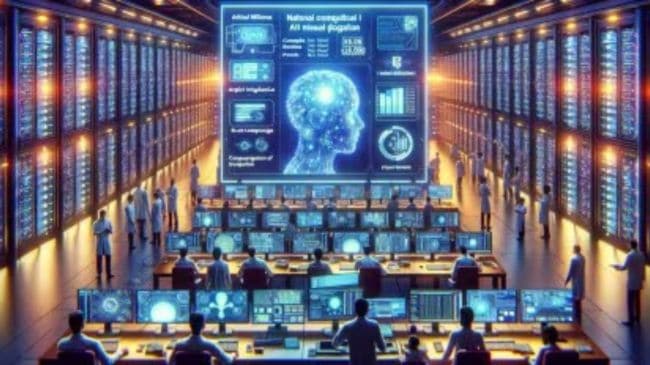The global discourse on artificial intelligence (AI) is increasingly polarized, with proponents viewing it as a transformative leap for humanity, while skeptics highlight its limitations. As India and the world stand on the brink of a technological revolution, it’s crucial to discern genuine concerns from mere hype and chart a path guided by wisdom.
The Optimism of AI Evangelists
Sam Altman, CEO of OpenAI, embodies the optimistic view of AI’s future. He believes AI will soon match or surpass human reasoning, positioning it as a partner in solving major global challenges like disease and climate change. To Altman, the progression towards artificial general intelligence (AGI) is not just probable but unavoidable.
The Skepticism of AI Realists
Contrasting this optimism is Apple’s research paper, “The Illusion of Thinking.” Through controlled experiments with large language models (LLMs), Apple highlights the limitations of AI in solving complex logic puzzles. While AI excels at pattern recognition, it struggles with genuine reasoning, emphasizing the gap between current capabilities and the vision of AGI.
Finding a Middle Ground
The truth likely lies between these extremes. AI has revolutionized industries, particularly where data synthesis and pattern recognition are crucial. However, Apple’s critique underscores a fundamental flaw: equating statistical prowess with genuine understanding. The difference between predicting the next word in a sentence and reasoning through complex problems remains significant.
The Real Risks of AI Overreliance
The primary concern is not AI’s potential to become superintelligent and autonomous. Instead, the danger lies in over-reliance on systems with misunderstood limitations. Deploying AI in critical sectors like healthcare or governance without recognizing these gaps could lead to systemic failures. Billions might be spent chasing AGI, neglecting pressing solvable issues.
Discarding Unfounded Fears
Current AI models pose no existential threat akin to science fiction. They are powerful tools, not autonomous agents plotting humanity’s downfall. The real threat is human hubris, placing undue faith in machines.
India’s Path Forward
For India, AI offers significant opportunities in language translation, agriculture, and public services. By utilizing AI’s strengths, such as pattern recognition and data analysis, India can address local challenges effectively. However, India must avoid succumbing to AGI hype. Instead, investing in human-in-the-loop systems is crucial, where AI aids but does not replace human judgment.
Lessons from Control Theory
Control theory teaches that true control over systems requires adaptability and dynamic response to feedback. Current AI models lack this flexibility, unable to adjust when complexity surpasses training. The illusion of AI control is as misleading as the illusion of AI thinking.
A Balanced Future
The future will be shaped by those who navigate the space between blind faith in AI and skepticism. The challenge is to harness AI’s strengths while remaining aware of its weaknesses. The true danger is not AI outsmarting us, but our potential to stop critical thinking.
Note: This article is inspired by content from https://indianexpress.com/article/opinion/columns/the-risk-is-not-ai-it-is-our-overreliance-on-imperfect-technology-10078697/ . It has been rephrased for originality. Images are credited to the original source.

